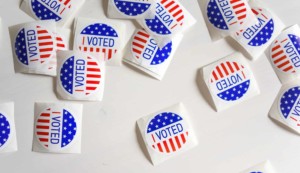The “Great Game” of Teaching History

By Stephanie J. Hull
You, a student pretending to be a presidential candidate, draw three cards. They say you’re a veteran and the head of a philanthropic organization, with two national nonprofits endorsing you. Those cards give you 12 points; your classmate (a state elected official and business leader at odds with a national trade association) has just eight points. You like your chances in the upcoming simulated election—until your next card, a media storm over your finances, costs you six points. Can you fix it? Do you fold?
This simple game, created by a group of New Jersey teachers, draws students in immediately. They naturally think and react as participants—not just learning about civics and elections, but instead taking part in the action and decision making. And when they eventually assess real candidates for office, they will do so with a deeper understanding of the real-life game of politics.

Recognizing games’ enormous power for learning, this summer a group of 50 New Jersey middle and high school social studies teachers gathered in Princeton to explore how gaming could be used to improve social studies instruction across the state.
Nominated by their schools, these teachers are participating in a 10-month program called HistoryQuest, created by the Woodrow Wilson National Fellowship Foundation and shaped by the New York-based Institute of Play. HistoryQuest uses games and play to transform both teacher practice and student engagement, and began with a weeklong institute this past summer.
The need for improved civics education has garnered growing national attention over the last five years. A 2011 article from The New York Times flagged low pass rates on a national civics exam. Former Supreme Court Justice Sandra Day O’Connor created icivics.org to promote more engaging ways of teaching and learning civics. A 2013 Stanford study called for more interactive and engaging instruction to help young people understand how power works and how one participates in the political process.
Little wonder that teachers of American history clamor for ways to help students develop a sense of agency, a deeper understanding of historical events and, more importantly, an appreciation of how individuals shape these events. These goals are familiar in the context of the much-touted 21st-century skills that infuse today’s curriculum, but teachers also share another, deeper motivation: addressing students’ disconnection from civic life and disinclination to act in the individual, political ways that have characterized American citizenship.
School leaders are well aware of the crucial need to move the teaching of American history away from passive learning. One principal who nominated a New Jersey HistoryQuest Fellow explained, “Our district has been focused on enhancing intellectual engagement, which requires students to be self-motivated when engaging with rigorous content. We believe that a game-based approach, especially with middle school students, will help us move toward that goal.”

A game-based approach to teaching and assessment is particularly effective in the context of finding sustainable ways to personalize instruction for diverse learners. Because it is a strategy that demands few resources beyond ingenuity and creativity on the part of the teacher—and children’s innate willingness to play—game-based education also translates well into all sorts of school environments.
Ultimately, fostering each student’s curiosity and sense of agency leads to habits of mind that support lifelong learning and civic engagement—and it is never a bad outcome when mastering required curriculum is exciting and fun. Teachers are also happily about the ease with which games can be tied into curriculum and standards and used to enliven content delivery and assessments while maintaining academic rigor. They are also committed to taking the lesson back to their colleagues—teachers teaching teachers, to make learning more dynamic throughout their schools.
For years, commentators have used the phrase “the great game” to describe complex global affairs and conflicts. By putting that metaphor to work in classrooms, programs like HistoryQuest harness the participation and playfulness that is part of human nature, helping young people understand that they, too, are part of this great game, and that learning how it is played is a crucial part of their future. In elections like this fall’s, such understanding will be essential for new generations of voters and citizens.
Stephanie J. Hull is the executive vice president and chief operating officer for the Princeton-based Woodrow Wilson Foundation. Follow them on Twitter: @StephanieJHull and @wwfoundation
Stay in-the-know with all things EdTech and innovations in learning by signing up to receive the weekly Smart Update.







0 Comments
Leave a Comment
Your email address will not be published. All fields are required.